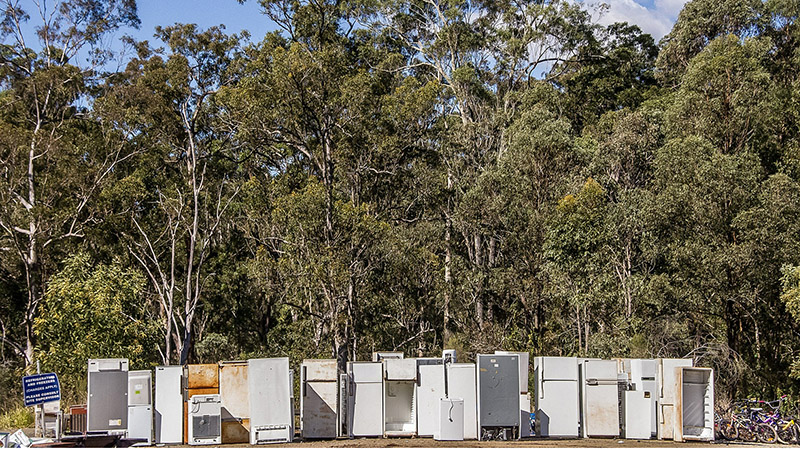The climate spotlight has been on Kigali this week, where negotiators are trying to clinch a deal to phase down HFCs.
These potent greenhouse gases, ironically used for cooling your food, vehicles and buildings, could drive up to 0.5C of global warming if usage grows unabated.
India has won some goodwill with a pledge to destroy HFC23, one of the group of chemicals. Still, it is the main blocker of a rapid transition to cleaner alternatives, which industry fears would be “economically crippling”.
US secretary of state John Kerry arrived on Thursday evening to lend his clout to calls for an ambitious phase-down schedule.
Talks look likely to go into overtime, with delegates booked on Saturday evening flights. Lou Del Bello will have an update on the sticking points later today.
Aussie rules
The UN-backed Green Climate Fund board appointed Australian former climate envoy Howard Bamsey to take over from Hela Cheikhrouhou at the helm.
It is an important job, with finance to developing countries critical to put the goals of the Paris climate deal into action. Bamsey will have to balance pressure to ramp up cash flows with concerns about the quality of applications.
Ten projects worth US$788 million under consideration got approval on Friday, with some conditions. Oscar Reyes of Washington DC’s Institute of Policy Studies called the process “wholly inadequate”, particularly on provisions for gender equality.
After wholly inadequate process, and lots of outstanding concerns, #GCFund approves all 10 new projects put to it /1
— Oscar Reyes (@_oscar_reyes) October 14, 2016
Controversial too is the selection of partner institutions to oversee spending. Korea Exim withdrew its application after protests about its support for coal, to complaints from the Saudi delegate. Eight other bodies were accredited, according to observer tweets.
Fossil focus
Even after nearly 200 countries agreed to crack down on greenhouse gas emissions in Paris, the message hasn’t really sunk in upstream.
Producers of coal, oil and gas keep opening up new frontiers, sinking cash into resources that cannot be burned within Paris warming limits.
It is a problem the academic community is starting to grapple with in earnest, comment Michael Lazarus and Harro van Asselt, following a conference run by Stockholm Environment Institute last month.
Green groups are urging Norway’s energy minister to set an example and cancel Arctic oil leases. In Colombia, climate activists are working with local communities to block fossil fuel extraction through the courts.
And BP has withdrawn controversial plans to drill in the Great Australian Bight, in a sign of reduced appetite for risky projects.
Quick hits
US: Energy emissions fall to 25-year low
Finance: Investors warn carmakers to clean up their act
US: Climate change blamed for doubling of forest fires
Lord Stern: Indigenous land rights fundamental to climate safety
No ratchet
Achieving the tough Paris goals of holding global warming “well below 2C” and aiming for 1.5C depends on countries ratcheting up ambition.
Official advice from the UK’s independent Committee on Climate Change to the government provides a reality check, then. There is no point tightening targets, it said, because it has no scenarios for how the country can get to net zero emissions.
Instead, it urged ministers to focus on achieving existing goals and developing technology to suck carbon out of the air.
Client Earth threatened legal action if the Conservative administration doesn’t close a yawning gap between targets and policies to get there. Climate minister Nick Hurd told Climate Home that was “very premature”.
And finally…
For those of you who like your explainers with retro footage, animated buzzwords and a voiceover by David Attenborough, here’s a short film on the Montreal Protocol.
Supported by the Children’s Investment Fund Foundation, it explains how Ronald Reagan and Margaret Thatcher were the unlikely heroes of the ozone problem. Released to coincide with the Kigali talks, it calls on leaders to use the same treaty to tackle the next environmental catastrophe: climate change.
